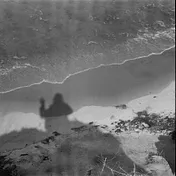This is an intense, touching piece on the way people's minds have been shaped by the pandemic, and the way that shape is in turn determined by their—our—failure en masse to handle the reality of the pandemic. It's another way of looking at the same issues I was driving at in COVID Denialism and Disability Justice, and I similarly found it helpful to bring myself some calm (if not closure) to the pain of seeing people act so heartlessly.
This is an intense, touching piece on the way people's minds have been shaped by the pandemic, and the way that shape is in turn determined by their—our—failure en masse to handle the reality of the pandemic. It's another way of looking at the same issues I was driving at in COVID Denialism and Disability Justice, and I similarly found it helpful to bring myself some calm (if not closure) to the pain of seeing people act so heartlessly.
